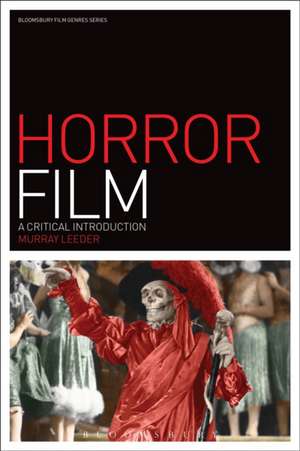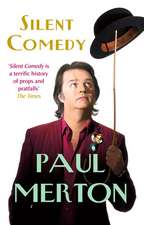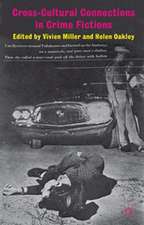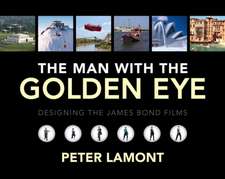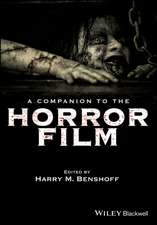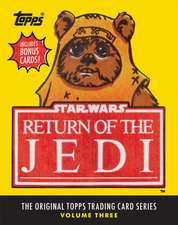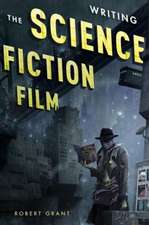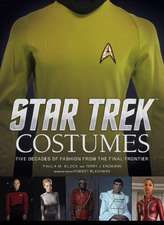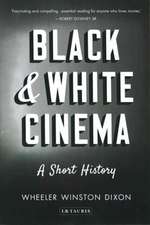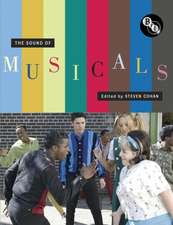Horror Film: A Critical Introduction: Film Genres
Autor Murray Leederen Limba Engleză Paperback – 24 ian 2018
| Toate formatele și edițiile | Preț | Express |
|---|---|---|
| Paperback (1) | 192.73 lei 6-8 săpt. | |
| Bloomsbury Publishing – 24 ian 2018 | 192.73 lei 6-8 săpt. | |
| Hardback (1) | 568.48 lei 6-8 săpt. | |
| Bloomsbury Publishing – 24 ian 2018 | 568.48 lei 6-8 săpt. |
Preț: 192.73 lei
Preț vechi: 250.11 lei
-23% Nou
Puncte Express: 289
Preț estimativ în valută:
36.88€ • 40.05$ • 30.98£
36.88€ • 40.05$ • 30.98£
Carte tipărită la comandă
Livrare economică 22 aprilie-06 mai
Preluare comenzi: 021 569.72.76
Specificații
ISBN-13: 9781501314438
ISBN-10: 1501314432
Pagini: 288
Ilustrații: 37 bw illus
Dimensiuni: 140 x 216 x 29 mm
Greutate: 0.41 kg
Editura: Bloomsbury Publishing
Colecția Bloomsbury Academic
Seria Film Genres
Locul publicării:New York, United States
ISBN-10: 1501314432
Pagini: 288
Ilustrații: 37 bw illus
Dimensiuni: 140 x 216 x 29 mm
Greutate: 0.41 kg
Editura: Bloomsbury Publishing
Colecția Bloomsbury Academic
Seria Film Genres
Locul publicării:New York, United States
Caracteristici
Includes a section on aesthetics, providing a unique sense of how to study the genre and to think about its relation to changing technologies, styles and the ways in which they have been understood
Notă biografică
Murray Leeder is Adjunct Assistant Professor in Communication, Media and Film at the University of Calgary, Canada. He is the author The Modern Supernatural and the Beginnings of Cinema (2017) and Halloween (2013), and editor of Cinematic Ghosts (2015) and ReFocus: The Films of William Castle (2018).
Cuprins
AcknowledgementsList of ImagesIntroduction1: Horror's Process of Genrification, 1895-19382: 1939-1973: Horror and the Crisis of Rationality3: 1974-Present: High and Low4: What Is Horror?5: Mind and Body: The 'Why?' of Horror6: Horror's Audiences, Critics and Censors7: Shocking and Spooky Sounds8: Colours of Fear9: Digital HorrorsWorks CitedIndex
Recenzii
Concise yet also comprehensive, Leeder's study examines the horror film from its prehistory to its digital future(s), tackling its history, reception contexts, and shifting forms. A delight to read, the book will satisfy newcomers to the horror genre as well as advanced scholars and die-hard fans.
Leeder maps the glorious dark continent of Horror, guiding us through its high metaphic mounatins and low slasher riverbeds, along the way uncovering the hidden treasures of a true art form that, at its most potent, is poetic, emotionally resonant, and quintessentially cinematic.
Horror Film: A Critical Introduction is an excellent, engagingly written book. It is both an indispensable introduction to one of the most consistently popular and culturally resonant film genres, and a work that brings new and imaginative perspectives, and previously neglected films and case studies, to the centre of debate and discussion within the field of horror film studies. Highly recommended for students, teachers, scholars and fans alike.
Ambitious and wide-ranging, Horror Film is a welcome, accessible overview of this most disreputable and delightful of genres. Leeder's focus is the reader new to studying horror: the fan, the student, the film practitioner looking to 'gen up' on genre. With clear, jargon free language, Leeder expertly guides the reader through horror standards including Dracula and Night of the Living Dead, while also making space to explore lesser known gems such as Eyes Without a Face and Ginger Snaps, smart indie films designed to provoke shock, disgust and dark pleasures.
The construction of the book and its engagement with horror in such an expansive way, across all areas of research, is ultimately how the book succeeds in its originality ... an incredibly readable guide without jargon and pretentious language. It also works well as potential research or a creative starting point, one that could lead to a new area of exploration for a seasoned horror scholar or filmmaker.
Leeder maps the glorious dark continent of Horror, guiding us through its high metaphic mounatins and low slasher riverbeds, along the way uncovering the hidden treasures of a true art form that, at its most potent, is poetic, emotionally resonant, and quintessentially cinematic.
Horror Film: A Critical Introduction is an excellent, engagingly written book. It is both an indispensable introduction to one of the most consistently popular and culturally resonant film genres, and a work that brings new and imaginative perspectives, and previously neglected films and case studies, to the centre of debate and discussion within the field of horror film studies. Highly recommended for students, teachers, scholars and fans alike.
Ambitious and wide-ranging, Horror Film is a welcome, accessible overview of this most disreputable and delightful of genres. Leeder's focus is the reader new to studying horror: the fan, the student, the film practitioner looking to 'gen up' on genre. With clear, jargon free language, Leeder expertly guides the reader through horror standards including Dracula and Night of the Living Dead, while also making space to explore lesser known gems such as Eyes Without a Face and Ginger Snaps, smart indie films designed to provoke shock, disgust and dark pleasures.
The construction of the book and its engagement with horror in such an expansive way, across all areas of research, is ultimately how the book succeeds in its originality ... an incredibly readable guide without jargon and pretentious language. It also works well as potential research or a creative starting point, one that could lead to a new area of exploration for a seasoned horror scholar or filmmaker.
